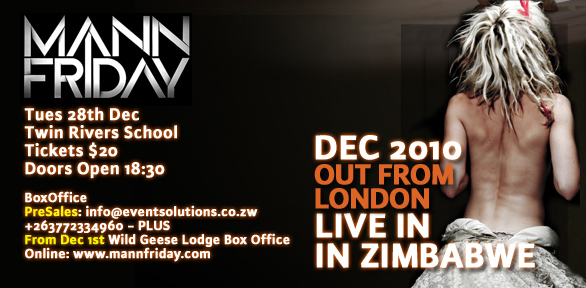No plan to issue broadcasting licenses
Thursday, November 18th, 2010 by Amanda AtwoodPermanent Secretary in the Ministry of Media, Information and Publicity, George Charamba, has stated that there will be no issuance of broadcasting licences to private players.
This despite the fact that it are more than two years since the signatories to the Global Political Agreement claimed, among other things, to be “[d]esirous of ensuring the opening up of the air waves and ensuring the operation of as many media houses as possible.”
The Zimbabwe Association of Community Radio Stations (ZACRAS) issued this response to Charamba’s statement:
ZACRAS response to George Charamba’s report to the Parliamentary Portfolio Committee
The Zimbabwe Association of Community Radio Stations (ZACRAS) is dismayed by statements made by the Permanent Secretary in the Ministry of Media, Information and Publicity, George Charamba, that there will be no issuance of broadcasting licences to private players.
According to Charamba, the government has no intention of issuing licences to private players in the near future until it has developed the capacity to monitor and regulate the activities of the new players. The Zimbabwe Independent of 12-18 November 2010, reported Charamba as having made these remarks when he appeared before the Media, Information and Communication Technology Parliamentary Portfolio Committee.
Recently, the Minister of Media, Information and Publicity, Webster Shamu, was reported as having acknowledged the need for the liberalisation of the airwaves so as to usher in independent radio and television stations. ZACRAS is now disturbed by these conflicting statements from Charamba. Charamba is a civil servant who is supposed to implement government policy, whereas Shamu enunciates these policies. The question which therefore comes to mind is who is running the Ministry of Media, Information and Publicity; a government Minister or a mere Secretary?
Charamba went on to add that the current levels of investment in broadcasting infrastructure in the country creates no room for new entries as espoused by the Global Political Agreement (GPA). Presently, two of ZACRAS’ members, Radio Dialogue in Bulawayo, and CORAH in Harare, are equipped with broadcasting equipment which will enable them to start broadcasting once they are granted licences. Last year, Minister Shamu visited Radio Dialogue and was impressed by the station’s state of preparedness for broadcasting.
In 2005, the Broadcasting Authority of Zimbabwe (BAZ) invited applicants for broadcasting licenses. The question which one therefore asks is why BAZ would take such an initiative if the broadcasting infrastructure was really not permissible for entrance by new players?
The policy makers’ denial of licencing new broadcasting players is a blatant disregard of citizens’ right to access information from diverse sources. Attitudes such as these are not only retrogressive but are a major stumbling block towards the creation of a diverse and pluralist media environment. The delay in the proper reconstitution of BAZ, and the perennial piecemeal amendments to the repressive media laws, on its own, stands as testimony of a lack of political will on the part of policy makers to liberalise the airwaves.
The broadcasting frequency spectrum is a public resource. As such, it should be accessed by those who have means to utilize it and not be restricted by the dictates of those who seek political mileage.
ZACRAS acknowledges the need to regulate and monitor the use of the broadcasting frequency so as to guard against its abuse. However, it is ZACRAS’ view that frequency management and use should not be detrimental to the needs and aspirations of citizens.
It is ZACRAS’s conviction that the government has no part in regulating and monitoring the operations of broadcasters. ZACRAS believes that there is need for the setting up of an independent broadcasting regulatory authority. The independent broadcasting regulatory authority should be mandated with monitoring and regulating the broadcasting industry through issuance of licences and maintaining checks and balances on licence holders.
Needless to say, the selection into the independent broadcasting board should be done upon consultation with all relevant stakeholders and be as transparent as possible. Transparency will ensure the creation of a legitimate board whose operations are devoid of partisan political, economic or individual interests.
It is ZACRAS’s belief that instead of monitoring and regulating broadcasters, the government should concern itself with creating a conducive national policy framework for broadcasters, upon consultation with all concerned stake holders.
The establishment of community radios is an essential part of development, as it enables communities to devise development initiatives and strategies to tackle pertinent issues such as agriculture, mining, health, education, water and sanitation. To this end, ZACRAS remains committed to promoting the creation of an environment which promotes the establishment and licensing of community radios in Zimbabwe.










